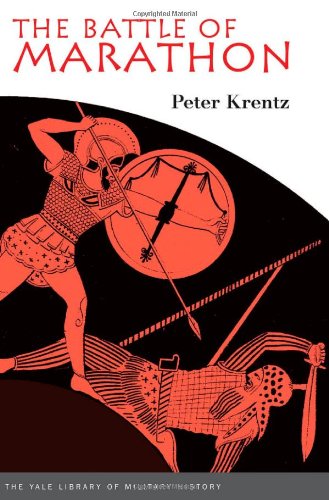

Most ebook files are in PDF format, so you can easily read them using various software such as Foxit Reader or directly on the Google Chrome browser.
Some ebook files are released by publishers in other formats such as .awz, .mobi, .epub, .fb2, etc. You may need to install specific software to read these formats on mobile/PC, such as Calibre.
Please read the tutorial at this link. https://ebooknice.com/page/post?id=faq
We offer FREE conversion to the popular formats you request; however, this may take some time. Therefore, right after payment, please email us, and we will try to provide the service as quickly as possible.
For some exceptional file formats or broken links (if any), please refrain from opening any disputes. Instead, email us first, and we will try to assist within a maximum of 6 hours.
EbookNice Team

Status:
Available0.0
0 reviewsHow did the city-state of Athens defeat the invaders from Persia, the first world empire, on the plain of Marathon in 490 BCE? Clever scholars skeptical of our earliest surviving source, Herodotus, have produced one ingenious theory after another. In this stimulating new book, bound to provoke controversy, Peter Krentz argues that Herodotus was right after all.
Beginning his analysis with the Athenians’ first formal contact with the Persians in 507 BCE, Krentz weaves together ancient evidence with travelers’ descriptions, archaeological discoveries, geological surveys, and the experiences of modern reenactors and soldiers to tell his story.
Krentz argues that before Marathon the Athenian army fought in a much less organized way than the standard view of the hoplite phalanx suggests: as an irregularly armed mob rather than a disciplined formation of identically equipped infantry. At Marathon the Athenians equipped all their fighters, including archers and horsemen, as hoplites for the first time. Because their equipment weighed only half as much as is usually thought, the Athenians and their Plataean allies could charge almost a mile at a run, as Herodotus says they did. Krentz improves on this account in Herodotus by showing why the Athenians wanted to do such a risky thing.